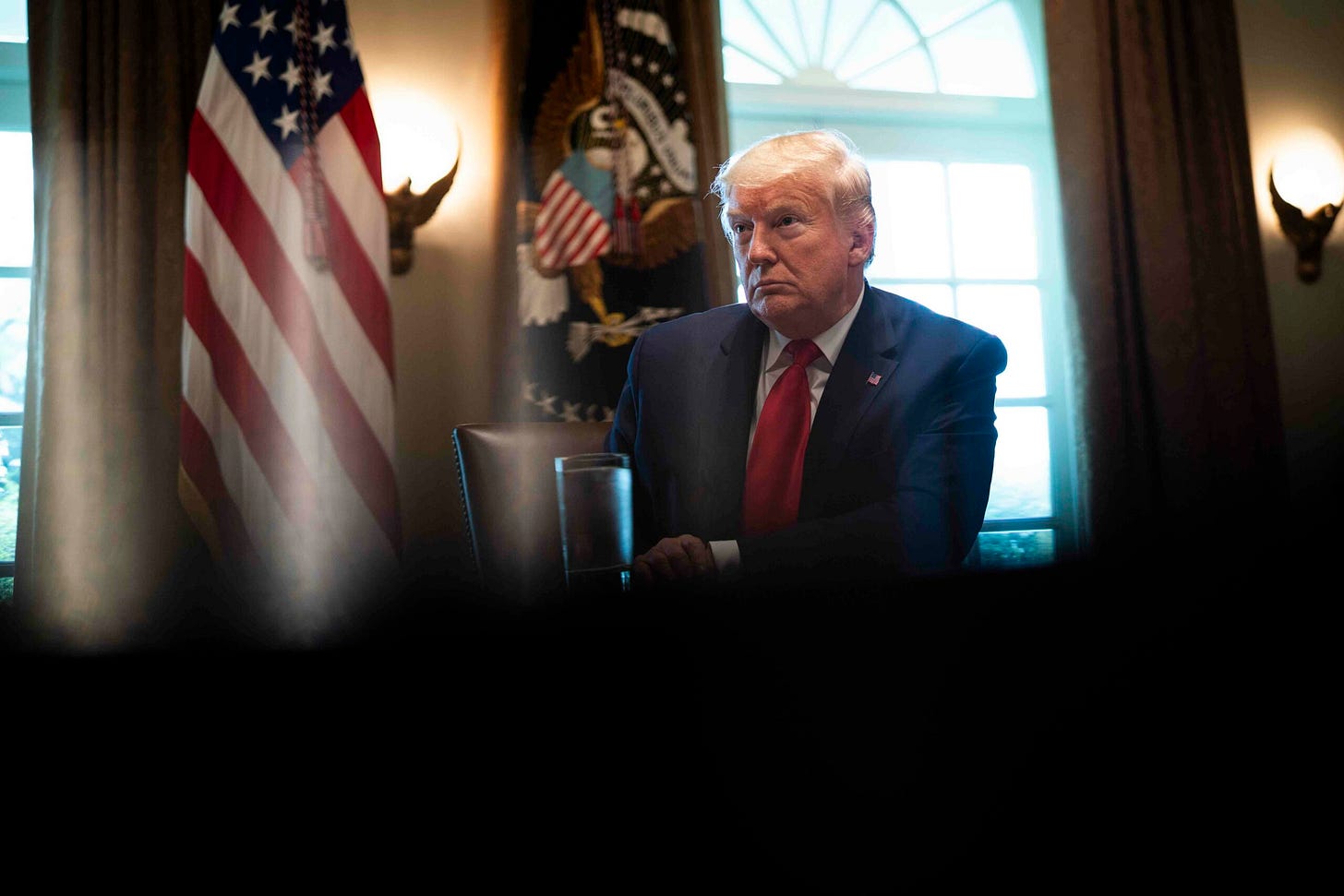Special Counsel Jack Smith and the Subpoena Battles
It’s a fight for the rule of law.
Special Counsel Jack Smith is reportedly in closed-door courtroom warfare of an unprecedented size and scope against Donald Trump’s praetorian guard. According to CNN, Smith has at least eight ongoing secret battles before Chief Judge Beryl Howell of the U.S. District Court and the judges of the Circuit Court of Appeals in Washington. Those battles are with witnesses whom Smith is trying to bring before his grand juries investigating Trump’s January 6th and Mar-a-Lago misconduct. And at least two more skirmishes—with former Vice President Mike Pence and former Trump White House chief of staff Mark Meadows—are sure to come before the judge, if they’re not already there.
Team Trump’s resistance to legal process is unquestionably driven by a desperate desire for self-preservation. But it must also be understood in the context of the last six years. Trump was a constitutional wrecking ball during his time in office. He did enormous damage to the rule of law. And his acolytes’ attempts to evade lawful subpoenas must be seen against that backdrop.
One of us (Lacovara) was the Watergate prosecutor who argued the White House tapes case in 1974, United States v. Nixon. The Supreme Court ruling in that case upheld a fundamental principle of true and evenhanded criminal justice: “The public . . . has a right to every man’s evidence.”
In the criminal justice setting, where the aim is “that guilt shall not escape or innocence suffer,” the adversary system fundamentally demands—as Richard Nixon’s own appointed chief justice, Warren Burger, wrote in his opinion for a unanimous Court—that “all relevant facts” be available. “The ends of criminal justice would be defeated if judgments were to be founded on a partial or speculative presentation of the facts.”
Today, as then, the foundational principle of the rule of law is at stake because the investigation is into a former president who desperately clung to the prerogatives of that office—access to national security secrets—and, on January 6th, to the presidential office itself. The ultimate question raised is whether the law treats all citizens equally or whether the powerful are above it.
Even today’s Supreme Court, tilted considerably further to the right than the Court in 1974, has recognized that a sitting president is subject to the rule of law. In mid-2020, Chief Justice John Roberts wrote for an 8-1 majority—with Justice Clarence Thomas alone dissenting—that Trump had to respond to then–Manhattan District Attorney Cyrus Vance’s subpoena as he investigated Trump’s pre-presidential wrongdoing.
The Court wrote that, historically, “The ‘single reservation’ to the duty to testify . . . was ‘the case of the king.’” But, Roberts emphasized, two centuries ago John Marshall explained that whereas “a king is born to power and can ‘do no wrong,’” a president is “‘of the people’ and subject to the law.”
None of the witnesses fighting Smith now or who will fight him in days to come is a former president, of course. Importantly, the courts have already rejected claims parallel to those being made by these Trump allies based on executive privilege and separation of powers.
Former Vice President Pence has said he will attempt to claim immunity under the Constitution’s Speech and Debate Clause, which states that “for any Speech or Debate” conducted in Congress, members “shall not be questioned in any other Place.” But the clause expressly extends only to “Senators and Representatives,” and while the vice president does preside over the Senate in his ceremonial role at the certification of a presidential election, the vice president is not a senator when he opens the envelopes and counts the votes. It has been reported that even Pence’s former legal adviser, the esteemed retired Court of Appeals Judge Michael Luttig, scoffs at that claim. Moreover, the letter that Pence published on January 6th explaining how he intended to proceed during the ceremonial counting of electoral ballots further undercuts this argument.
Of course, while each case is different, the ultimate outcomes in those before Judge Howell and the appeals court are largely not in doubt. Smith will surely prevail in the preponderance of them. The real question is whether Trump’s allies can achieve the objective of delaying Smith’s investigation.
The strategy may be to fight a rearguard action long enough to postpone any decision to indict Trump, a declared candidate for the 2024 presidential election, until the Justice Department’s longstanding practice of avoiding politically sensitive charges close to an election kicks in. Smith has been prudent to keep his options open by bringing these battles to court promptly while he simultaneously pursues other parts of his investigations, especially the Mar-a-Largo misconduct, well before his January 6th seditious conspiracy case is ready.
Subpoena battles are not exactly rare, but this volume is more than unusual—although certainly in keeping with standard operating procedure during the Trump years, when the former president outrageously turned resisting subpoenas into policy for the executive branch, another front in his war on the rule of law.
The country is fortunate to have a legal warrior like Smith standing up to Trump’s forces now—not just because the outcomes of his investigations and prosecutions matter, but because this fight is crucial to a judicial system in which the law proceeds against even its most powerful violators without fear or favor.





